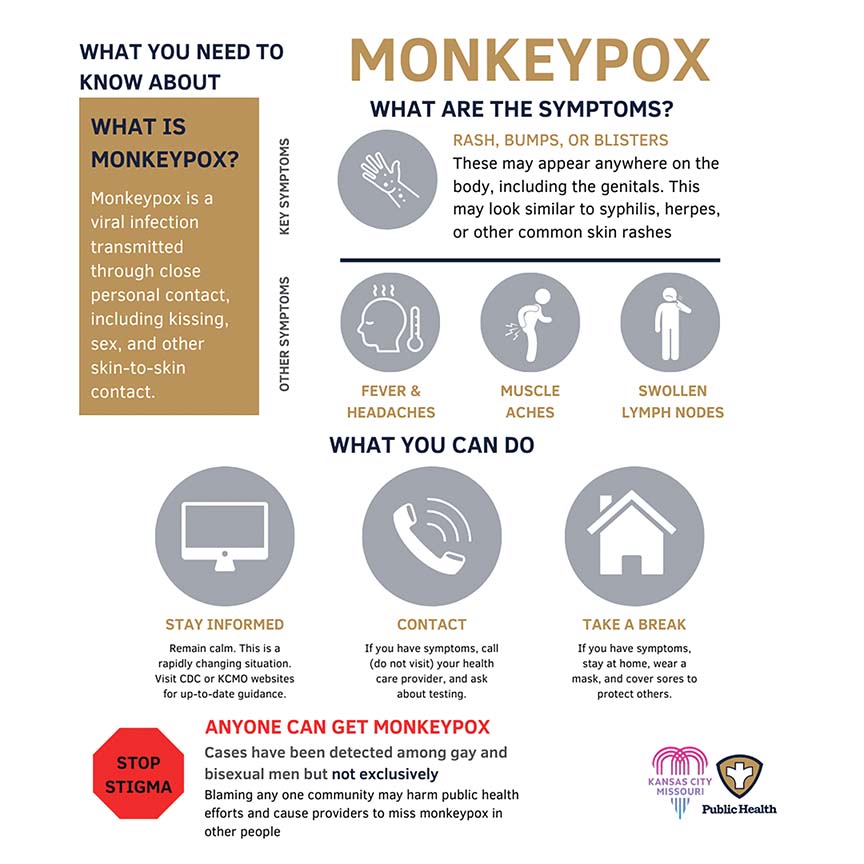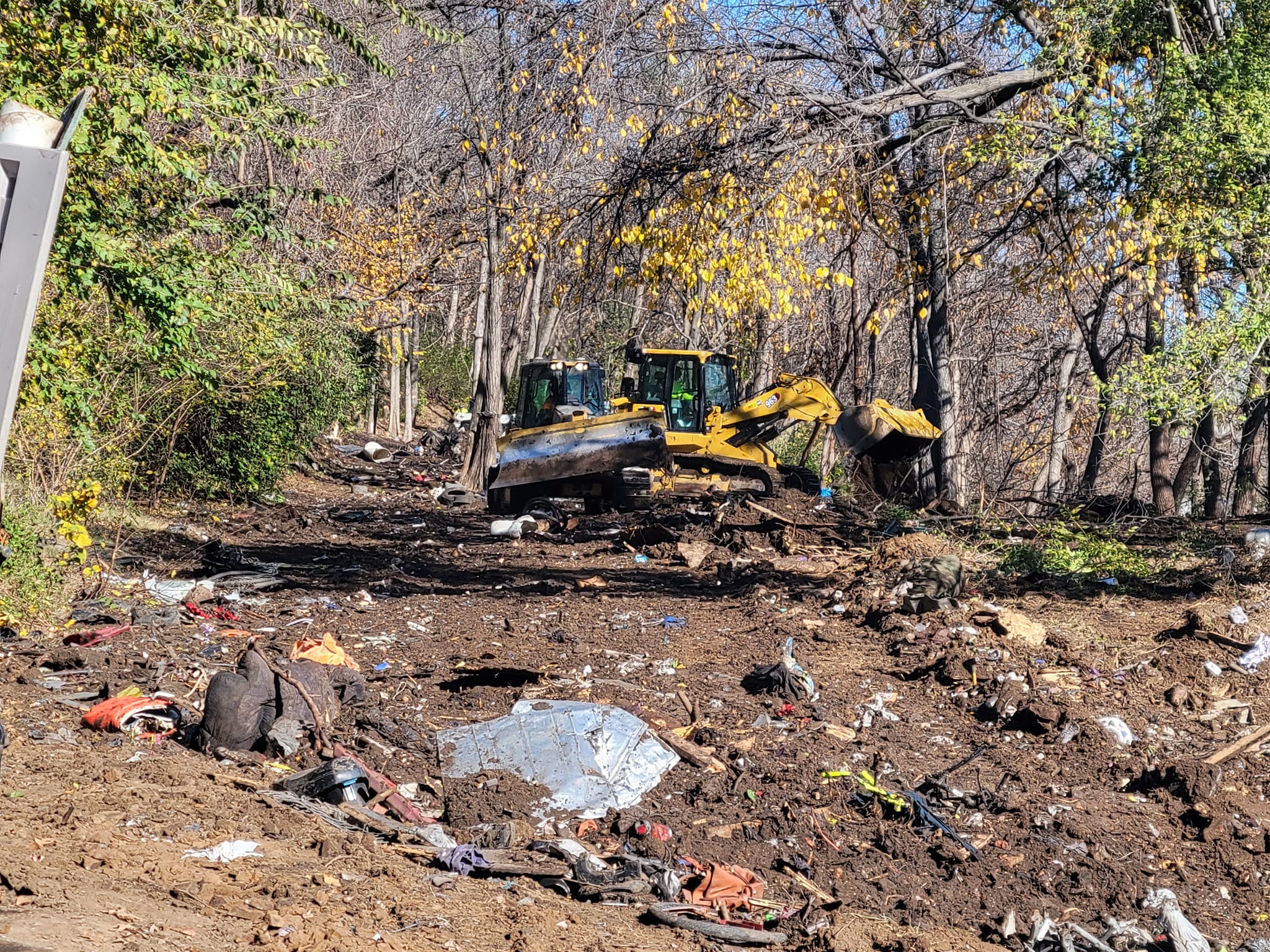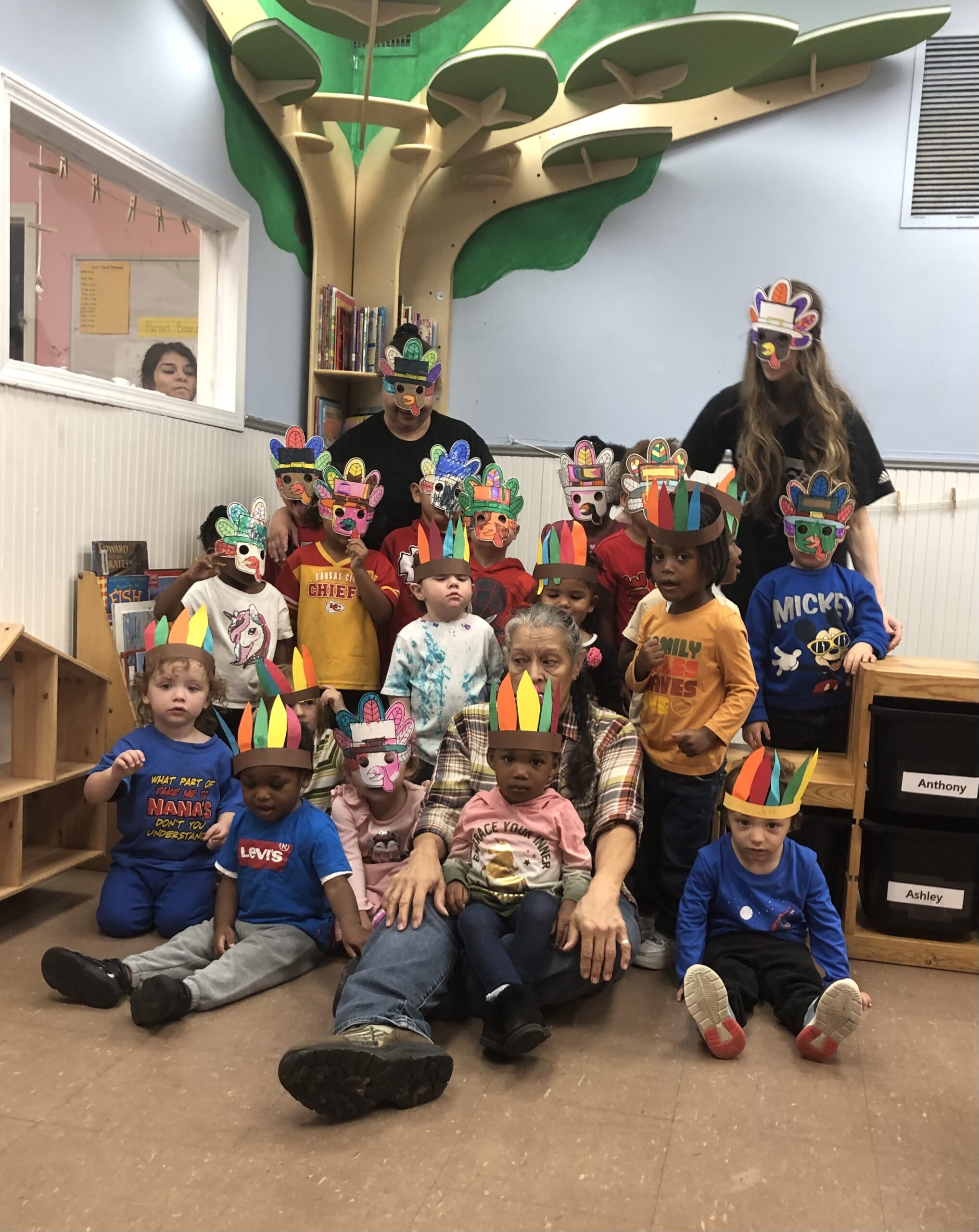
Abby Hoover
Managing Editor
Monkeypox cases are on the rise in the United States, and recently the Biden administration and the Center for Disease Control declared a national emergency after cases tripled over a two-week period at the end of July and the beginning of August.
On August 12, the number of Monkeypox cases eclipsed the 11,000 mark with only one state, Wyoming, reporting zero cases. As of August 18, there are 14,115 total confirmed monkeypox cases, with 25 in Missouri and three in Kansas.
Monkeypox is spread primarily through close, personal, skin to skin contact such as hugging, kissing or contact with infected sores or lesions. It can also be contracted through direct contact with infected clothing, towels or surfaces. It can also be spread through respiratory secretions.
Symptoms usually start within two weeks of infection and include a skin rash, bumps and open sores. Sores may look similar to some STIs, such as syphilis and herpes. Sores will scab over prior to healing which may take several weeks. Other symptoms include head or body aches, swollen lymph nodes and a low energy level. While Monkeypox may not be fatal, symptoms could last upwards of three to four weeks.
On July 26, the Kansas City, Missouri Health Department received 900 doses of the Jynneos vaccine administered to prevent Monkeypox. That supply is enough for 450 people given a two-dose vaccination regimen. The vaccine is currently provided only to those who are considered high or medium risk after an exposure to a confirmed case and who have been approved by the state for vaccination.
If you believe you’ve been exposed, call your doctor or call the Kansas City Health Department (KCHD) to answer your questions or schedule an appointment. Avoid skin-to-skin contact until you have been checked out by a doctor or nurse. This includes kissing; hugging; cuddling; massaging; oral, anal, or vaginal sex or touching. Avoid gatherings until you have been checked out by a doctor or nurse. Talk to your sexual partners about any recent illness. Ask if they have had any new or unexplained sores or rashes.
Monkeypox is not a new virus. It has been around since 1958. At this time, the risk of getting monkeypox in the general public is very low.
KCHD is responding to residents who may need the monkeypox (MPV) vaccine by establishing a survey to allow individuals to identify their risk level. The department is also taking steps to increase its MPV vaccine supply to better protect high-risk individuals.
Direct exposure to someone with the virus has been the only way Missouri residents can receive the vaccine. Currently, because supply is limited, local health departments and physicians in Missouri must receive case-by-case approval from the state before vaccinating individuals. However, that will soon change.
The Missouri Department of Health and Senior Services has approved a portion of Kansas City’s northwest region supply for up to 1,125 people who may not know for certain they have been exposed to the virus, but who have been in high-risk areas or conditions.
“We feel the urgency that many of you are feeling. We want to give the Jynneos vaccine to people who have been exposed and anyone in high-risk groups,” said Marvia Jones, health director. “We have been working with the state and our CDC partners every day on a plan that will lead us to vaccinate more people who meet the high-risk definitions but do not have proof they have been in direct contact with someone with the virus.”
To do this, Kansas City Health and DHSS have created a survey to allow residents to assess their risk level and indicate where they would like to receive their MPV vaccine once they are eligible. For the Kansas City area and greater northwest area, they may choose these locations: KCMO Health Department at 2400 Troost Ave., University Health – Truman at 2301 Holmes St., KC CARE Health Center at 3515 Broadway Blvd., Vivent Health at 4309 E. 50th Terr. Suite 200, or St Joseph Health Department at 904 S. 10th St.
Once a survey is received, and eligibility is confirmed, the Health Department will set up an appointment. After the initial dose, a second dose will be needed four weeks later.
Kansas City has received 1,800 vials of Jynneos vaccine, which last week amounted to enough vaccine for 900 people. Now, thanks to the approval of a new, preferred method to administer the vaccine, this is enough to vaccinate up to 4,500 people.
The health department also wants to acknowledge the fear that is preventing some people with MPV from seeking treatment.
“We all remember putting our names on waiting lists before the COVID vaccines were approved,” said Tiffany Wilkinson, program director of Communicable Disease Prevention and Public Health Preparedness Division. “We know many gay, bisexual and transgender men and women have told us they are terrified their names will be kept and categorized and someday used to persecute them. We recognize the mistakes of the past and know your fears are justified.”
Although the national stockpile of Jynneos vaccine is limited, completing the screening form will be the fastest way to the vaccine. As a reminder, the Health Insurance Portability and Accountability Act (HIPAA) is federal law, protects your privacy and prohibits anyone from sharing the protected information with anyone other than the patient and the patient’s designated representatives.
“Remember, the overall risk of being exposed to MPV remains very low,” Jones said. “But for those who know you are at high-risk, please protect yourself while you await the vaccine.”
For more information on the Monkeypox virus, or how to get vaccinated, visit the CDC’s website at www.cdc.gov/poxvirus/monkeypox/response/2022/us-map.html or visit the Kansas City Missouri Health Department at www.kcmo.gov/city-hall/departments/what-we-know-about-the-monkeypox-virus.

















